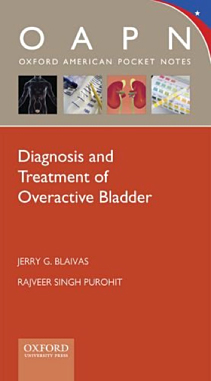Enuresis Evaluation
As always, the evaluation begins by your doctor asking a bunch of questions – when did it start? Are there any other symptoms? Are there symptoms of urinary tract infection such as pain during urination or marked frequency? Are there signs of a blockage in the urethra such as weak stream or difficulty starting? Are there signs of a neurologic condition like numbness or tingling or weakness in the extremities? On the first visit, a urinalysis and urine culture should be done to make sure that it is not being caused by a simple infection and that there is no blood in the urine. If infection is found, it should be treated with culture specific antibiotics and, in the majority of women, that’s all that needs to be done. If there is blood in the urine, a full work up including a kidney X-ray (IVP) and cystoscopy (looking into the bladder) should be done.
The next step in evaluation is for you to get a uroflow and postvoid residual urine determination. For the uroflow, you simply urinate into a funnel which measures the urinary flow rate and the amount of urine that you voided. The amount of urine that is left in your bladder after urinating is called the post-void residual (PVR). This is usually measured with an ultrasound probe placed over your lower abdomen immediately after you urinate. Both the uroflow and PVR are non-invasive and painless and give very important information. If the residual urine is high and the flow is low, you most likely have a weak bladder. If you’ve had previous pelvic surgery, there may be a blockage due to scarring in the urethra. No matter what the results of the uroflow and residual – even if they are normal – the next step is urodynamics. In either case, the only means of making an accurate diagnosis is to perform urodynamic studies. If a urethral obstruction is found, the specific cause should be investigated. This will probably require cystoscopy to see exactly where the blockage is in the urethra. If the bladder is found to be weakened or not working at all, or if there are unexplained involuntary bladder contractions, it may be necessary to see a neurologist to evaluate the possibility of a neurologic condition.
Why Choose a Uro Center Urologist in New York?
The urologists at the Uro Center in New York are experts in their field, bringing academic and research based innovation to the clinical forefront. Our urology team specializes in areas of treatment such as: robotic surgery, reconstructive urology, men’s health & infertility, kidney stones, urologic oncology, penile implant surgery, urethral stricture, BPH, Urinary incontinence treatment, Mesh complications, Enlarged prostate treatment, Urodynamics, vesicovaginal fistula and female incontinence in New York.
Request an Appointment











